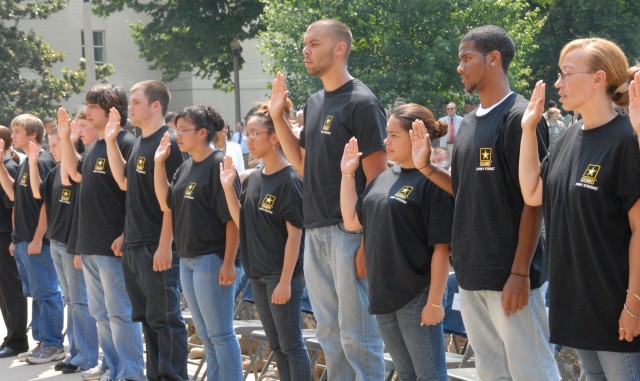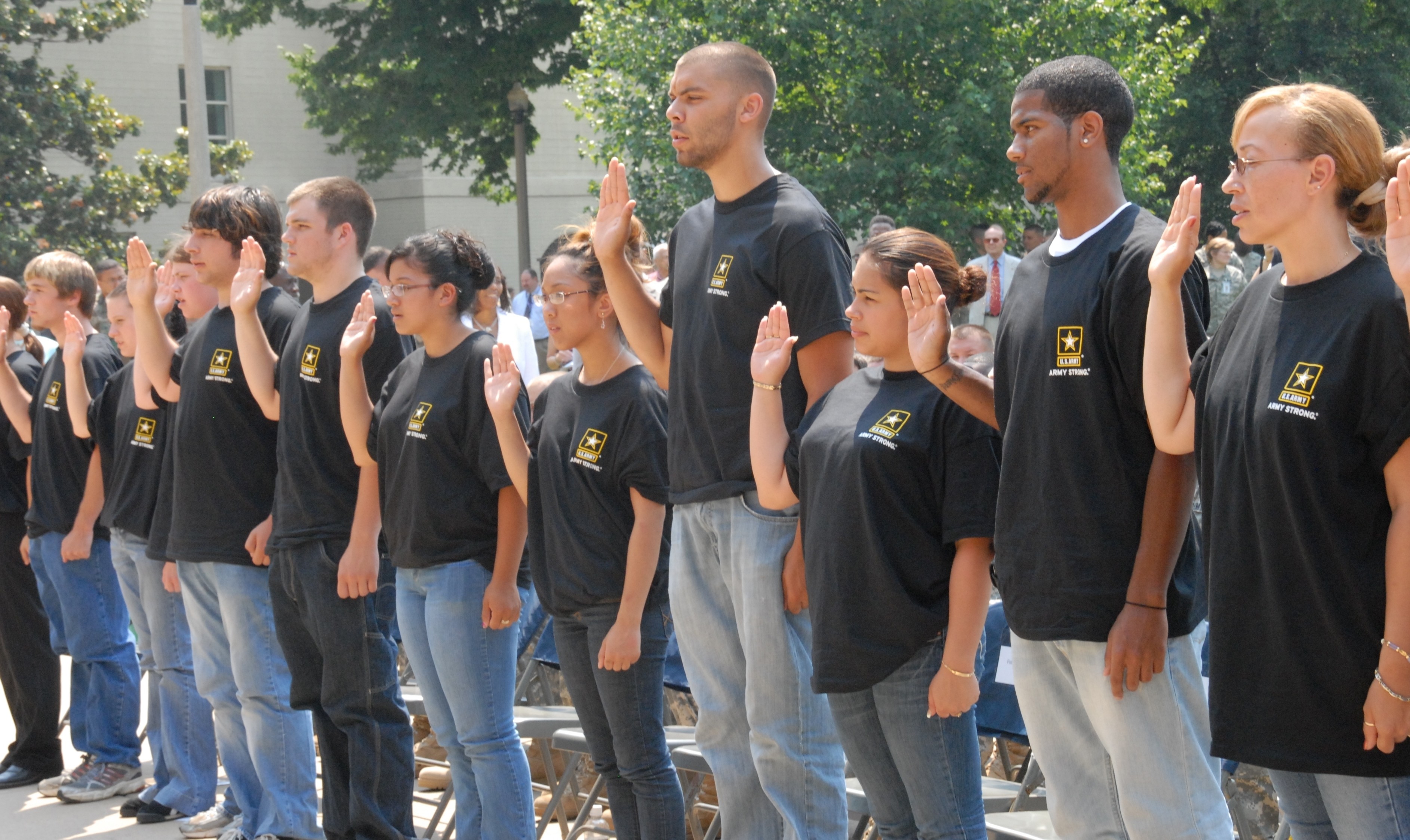
WASHINGTON (Army News Service, June 20, 2008) Aca,!" Active-duty enlisted Soldiers and future Soldiers in the Delayed Entry Program can now serve as assistant recruiters and earn extra money in their off-duty hours.
The Army Recruiter Assistance Program, which became effective Monday, will pay these Soldiers $1,000 when a recruit they refer enlists and another $1,000 when that recruit ships to basic combat training.
ThatAca,!a,,cs often months sooner than the bonuses all Soldiers, active-duty, reserve-component and retired, and Department of the Army Civilians, are eligible to receive under the $2,000 referral program. Under the $2K program, these bonuses, also in payments of $1,000, are not available until the recruit starts basic training, and then completes advanced individual training. Soldiers can participate in both recruiting programs, but not by referring the same prospect twice, officials said.
Aca,!A"(A Soldier) is kind of like a walking billboard,Aca,!A? said Al Green, the chief of the Recruiting Policy Branch at the Office of the Deputy Chief of Staff for G-1 (Personnel). Aca,!A"He has a big impact because people trust SoldiersAca,!A|So if this Soldier is telling me how the Army was for him, heAca,!a,,cs a living testament of how the Army works. He can address and overcome some objections or concerns that a prospect would have, so once he gets to the recruiter, he probably has his mind made up.Aca,!A?
In addition to actually referring people, Soldiers in the A-RAP program are expected to spend time with potential recruits, encourage them and answer any questions they might have about the Army. According to Green, Soldiers need to go with their prospects to see recruiters, and should attend Delayed Entry Program meetings with them after they enlist.
Aca,!A"You are walking this applicant through this process, from the day he joins until he ships, because if you do that, you probably will get him to ship,Aca,!A? said Green. Aca,!A"There is a little bit more work involved (than the $2K program), but I think one of the things that would enhance participation would be the timeliness of pay. Some individuals, depending on their specialty, canAca,!a,,ct get into basic training for seven or eight months because of space availability and things of that natureAca,!A|it has an impact. The bottom line is that they will get $1,000 immediately.Aca,!A?
To be eligible for the program, Soldiers also must complete training about the basics of screening individuals to determine their eligibility, and need the approval of their unit commander. Soldiers can only participate in A-RAP when they are off-duty, because they are technically working for a private contactor to provide recruiting assistance, and they canAca,!a,,ct wear a uniform or use government resources. For legal reasons, commissioned officers and warrant officers cannot participate in A-RAP, although they are still eligible for the $2K program.
Average Soldiers, Green said, can make a real difference to the Army and its recruiting goals through programs like A-RAP, because they are telling the Army story in a way that will resonate much deeper than recruiters working on their own.
He also added that the participation of future Soldiers in the delayed entry program is key because they can encourage their former classmates and other friends who may still be deciding what to do with their lives. In turn, that future Soldier, may have more friends to serve with.
For additional information or to apply, visit <a href="http://www.2k.army.mil/armyrap.htm"target=_blank>
http://www.2k.army.mil/armyrap.htm</a>.
The Army Reserve has a similar recruiting assistance program called AR-RAP and the National Guard has G-RAP.

Social Sharing